
The 8th House Astrology: The Shadow Side of Human Beings
 The 8th house is astrology’s very own basement, the place where all the skeletons are kept, occasionally rattling their bones to remind you they’re still there. It’s the domain of the taboo, the hidden, and the transformational. This is the realm of self-confrontation, and it’s a bit like being your own therapist, only without the comfy couch and the soothing voice of someone with diplomas on their wall. It’s where you stare into the abyss, and—surprise—the abyss stares back, offering a reflection that’s both terrifying and enlightening. It demands that you dig, sift, and analyze every emotion, every dark thought, every shadow lurking in your psyche. It’s not content with surface-level understanding. Oh no, it wants the nitty-gritty, the real stuff. For those with Pluto making itself known in your chart through lots of aspects, or a brood of planets loitering in Scorpio, this self-investigation is almost second nature. You’re like an emotional psychologist, solving the mysteries of the human condition, your own included. You’ve got a knack for unearthing what others would prefer to keep buried, and it’s not just about airing dirty laundry; it’s about understanding why that laundry got so filthy in the first place.
The 8th house is astrology’s very own basement, the place where all the skeletons are kept, occasionally rattling their bones to remind you they’re still there. It’s the domain of the taboo, the hidden, and the transformational. This is the realm of self-confrontation, and it’s a bit like being your own therapist, only without the comfy couch and the soothing voice of someone with diplomas on their wall. It’s where you stare into the abyss, and—surprise—the abyss stares back, offering a reflection that’s both terrifying and enlightening. It demands that you dig, sift, and analyze every emotion, every dark thought, every shadow lurking in your psyche. It’s not content with surface-level understanding. Oh no, it wants the nitty-gritty, the real stuff. For those with Pluto making itself known in your chart through lots of aspects, or a brood of planets loitering in Scorpio, this self-investigation is almost second nature. You’re like an emotional psychologist, solving the mysteries of the human condition, your own included. You’ve got a knack for unearthing what others would prefer to keep buried, and it’s not just about airing dirty laundry; it’s about understanding why that laundry got so filthy in the first place.
But let’s not kid ourselves—this journey isn’t all introspective musings and breakthroughs. It’s raw, it’s uncomfortable, and it can feel like you’re standing in front of a mirror that shows every wrinkle of your soul. Yet, it’s in this confrontation where the real growth happens. When you drag those buried emotions, those hidden fears, into the light, they lose their power over you. What once was dark becomes a source of strength, and what was once feared becomes understood. The 8th house, then, is less a place of doom and more an area of transformation. It’s where we alchemize our most hidden parts into wisdom, compassion, and power. So, while the process might involve a bit of digging through the muck, remember that what you’re unearthing is pure gold—the treasure of self-awareness, the kind that can only be found in the depths.
Here in the 8th house we meet the age-old debate: to stir or not to stir? Do we poke at the shadows lurking beneath the surface, or do we let them stay buried where they can’t reach us? The idea of letting sleeping dogs lie is a tempting one, especially when those dogs are more like snarling beasts of past traumas and unresolved emotions. But here’s the thing—those beasts have a way of waking up on their own, and when they do, they’re often more ferocious for having been ignored. The idea of pushing things down, of burying them deep within, is understandable. It’s a survival tactic, a way of coping when life deals us cards that are too difficult to face head-on. But the trouble with burying things is that they don’t stay buried. They fester, they grow roots, and they start influencing us in ways we don’t even realize. They show up in our relationships, in our fears, in the quiet moments when we think we’re safe. And that’s the trickery of the shadow self—it’s always there, quietly pulling strings behind the scenes.
Life, in its infinite wisdom or perhaps its infinite irony, eventually forces us to confront what we’ve buried. Whether it’s through a crisis, a relationship pushing our buttons, or just an overwhelming sense of unease we can’t quite shake, there comes a point where we have no choice but to face the darkness within. And, yes, this process is as uncomfortable as it sounds. It’s messy, painful, and it can feel like you’re peeling back layers of yourself only to find more layers that need peeling. But here’s where the magic lies. In those dark corners of the psyche, where we’re most reluctant to look, there is also the potential for the greatest healing. It’s like cleaning out a wound—painful in the moment, but necessary if we want to avoid infection, if we want to heal properly. The journey through the shadow self is one of the most challenging paths we can take, but it’s also one of the most rewarding. Because it’s in that confrontation with our darker aspects that we find our true power. It’s where we integrate the parts of ourselves we’ve rejected, and in doing so, become whole. The process may be difficult, but the reward is worth every ounce of discomfort.
The 8th house is where all our emotional baggage gets its own corner suite and where relationships become the grandest of mirrors, reflecting back not just our best selves, but the parts we’d rather keep hidden. It’s the proverbial attic filled with dusty old boxes, except the boxes are labeled “childhood trauma,” “fear of abandonment,” and “insecurities you didn’t even know you had.” This is where things get truly complex, isn’t it? Because it’s not just our own shadow we’re grappling with—when we enter into an intimate relationship, we’re also inviting someone else into that attic. And let’s be honest, we’re hoping they’ll help us tidy up, maybe even take a few boxes with them when they leave. It’s the unspoken deal: “I’ll love you, but can you also carry some of this emotional weight I’ve been lugging around?”
But no one can heal us but ourselves. Yes, a loving partner can provide support, understanding, and even a sense of safety as we enter into our inner landscape, but they can’t do the heavy lifting for us. The 8th house shows us that true intimacy isn’t about finding someone to fix us or take away our pain. It’s about sharing our deepest vulnerabilities, our fears, our emotional scars, without expecting the other person to be the balm that makes it all better. This house governs the merging of resources, but more profoundly, it’s about the merging of souls. It’s where we lay bare our deepest truths, the ones we’ve repressed, denied, or outright rejected, and trust that our partner will still see us with love. This level of intimacy is terrifying because it requires us to be seen fully, not just in our strengths but in our weaknesses as well. It asks us to expose the parts of ourselves we’ve hidden away, to show our scars and say, “This is part of me too.”
And let’s not forget, the 8th house is also about power dynamics—the subtle (or not-so-subtle) ways we give and take control in relationships. We might unconsciously hand over our power, hoping our partner will use it to heal us, or we might hold on to it tightly, afraid of what will happen if we let someone else in too deeply. But true intimacy requires a balance, a willingness to share not just our resources but our deepest selves, without using our vulnerabilities as a bargaining chip. In this house, sex isn’t just about physical pleasure; it’s a metaphor for the deepest kind of union, where bodies, souls, and emotions intertwine. It’s where we face our fears about being truly known, where we confront the possibility of rejection, and where we learn that love, real love, isn’t about perfection. It’s about seeing each other’s flaws, wounds, and emotional scars and choosing to love them anyway.
The 8th house teaches us that the greatest intimacy comes not from hiding our shadows but from revealing them. We have to have the courage to be vulnerable, to share our deepest fears, and to trust that in doing so, we’re creating a bond that’s not just about love but about deep transformation. Because in the end, it’s not just about finding someone who will carry our baggage; it’s about finding someone who will help us unpack it, sort through it, and ultimately, let go of what no longer serves us. And in this process, we discover a deeper connection, not just with our partner but with ourselves.
The tangled web we weave when two souls collide in the battleground the 8th house, where all our nicely buried emotions suddenly rise from the deep like monsters from the lagoon. It’s a space where individual pasts collide and intertwine, bringing with them a cargo hold of values, experiences, and, most precariously, those festering emotions that have been relegated to the depths for far too long. When we merge with another in intimacy, we don’t just bring our best selves to the table; we also haul along the shadowy parts of us—the anger, the resentment, the unhealed wounds that whisper in the dark. Those blocked-off emotions we’ve tried to ignore? They’re not content to stay buried. They find a way to express themselves, often in the most explosive and destructive ways, particularly when we least expect or desire it.
Imagine these emotions as dormant volcanoes, quietly simmering beneath the surface until something—a word, a look, a touch—triggers an eruption. Suddenly, the landscape of the relationship is ablaze with conflicts that seem disproportionate to the situation at hand. What’s really happening is that the pressure from all those repressed feelings has found an outlet, and it’s not going to be pretty. It’s as if the emotions are saying, “You ignored me long enough; now, I demand to be seen!” These volcanic outbursts often manifest as fits of rage, inexplicable arguments, or destructive behavior that seems to come out of nowhere. But they aren’t random. They’re the direct result of unresolved pain—emotions that have been boxed up and pushed down until they can’t be contained any longer. The 8th house is the arena where these battles play out, where the unconscious demands to be acknowledged, no matter the cost. And this is where things get particularly harrowing, because the emotions that surface in the 8th house often touch on the most painful aspects of human experience: domestic abuse, sexual mistreatment, power struggles, manipulation, and neglect. These are not gentle emotions; they are raw, primal, and deeply connected to our sense of survival. When these issues come to the fore, they can trigger reactions that are more about self-preservation than rational thought. The need to protect oneself, to regain control, or to lash out becomes overwhelming.
The unfortunate truth is that in trying to manage these powerful feelings, people often resort to unhealthy behaviors—provoking arguments, creating drama, or engaging in acts of self-destruction. It’s a subconscious attempt to release the pressure, to bring what’s been hidden into the light, even if the method is destructive. These actions are cries for help, expressions of pain that’s been too long ignored. But here’s the thing: these eruptions, as painful and damaging as they might be, also offer an opportunity. They force us to confront what’s been lurking in the shadows, to address the wounds that have been festering. It’s a chance to stop the cycle of repression and start the process of healing.
The 8th house doesn’t drag these issues to the surface for the sake of chaos. It’s demanding transformation. It’s saying, “Look at this pain, feel it, understand it, and then let it go.” And while this is easier said than done, it’s the only way to break free from the patterns of rage, manipulation, and destruction that can otherwise dominate our intimate lives. In a relationship, this means being brave enough to face the difficult conversations, to acknowledge the hurts and fears that both partners bring into the union. you have to create a space where those volcanic emotions can be expressed in a way that’s not destructive but transformative. Yes, it’s messy, and yes, it’s painful. But it’s also the path to a deeper, more genuine connection—one that’s not based on the suppression of the shadow but on the integration of it.
The stage of the psyche—where the actors are our deepest fears, hidden traumas, and unexpressed emotions, all waiting in the wings for their moment in the spotlight. It’s like the mind is a playwright, penning scenes that demand to be performed, even if the content is tragic, chaotic, or downright destructive. When those close to us start acting out in ways that are self-destructive or seemingly irrational, it’s as if the curtain has been lifted, and we’re suddenly spectators to a drama that’s been brewing in the subconscious for far too long. These performances, these emotional outbursts, aren’t random. They’re the psyche’s desperate attempt to externalize what’s been internalized for too long. It’s like shaking a bottle of soda—eventually, the pressure builds to the point where the cap can’t hold it anymore, and everything comes spewing out. The anger, the violence, the compulsive behaviors—they’re all expressions of pain that hasn’t found a healthier outlet.
When we see someone we care about engaging in these toxic behaviors, it’s indeed like waving a red flag—an urgent signal that there are deeper issues at play. It’s the psyche’s way of saying, “Pay attention! There’s something here that needs to be addressed, something that’s been festering in the dark for too long.” And often, these issues are not surface-level irritations; they’re the result of unresolved trauma, unmet emotional needs, or feelings of powerlessness that have been simmering beneath the surface. Psychologically speaking, what’s repressed doesn’t just disappear. It lingers, it festers, and eventually, it demands expression—often in ways that are harmful to ourselves and others. This is why it’s so important to recognize these signs for what they are: not just outbursts or bad behavior, but symptoms of a deeper emotional imbalance.
To prevent these toxic states from taking over, there’s a need for exorcism—not in the literal, horror movie sense, but in a psychological sense. You have to confront these emotions, bring them into the light, and find ways to process and release them. This can be done through therapy, through honest conversations, or through creative outlets that allow these feelings to be expressed in a controlled, constructive manner. The goal is to stop these emotions from driving us to act out compulsively, violently, or obsessively. Essentially, we’re taking back control from the unconscious forces that have been steering the ship, often to destructive ends. By acknowledging and working through these feelings, we can prevent them from manifesting in harmful ways and instead, channel that energy into something positive, something healing. In relationships, this means being attuned to the signs—recognizing when a partner’s anger or self-destructive behavior is more than just a passing phase, and understanding that it’s a cry for help, a signal that deeper work needs to be done. The process of exorcising these toxic emotions means we reclaim our power from the shadows of our psyche. It’s taking the stage back from the darker parts of ourselves and rewriting the script, one that leads not to destruction but to healing, growth, and a more integrated, balanced self.
When we provoke emotional outbursts in others, it’s not so much a conscious act as it is an unconscious dance—where our own unresolved emotions, too frightening to face directly, seep into our interactions and set off explosions we hadn’t intended. It’s as if the emotional minefield within us extends outward, and anyone who steps too close to those hidden triggers unwittingly sets them off. The 8th house is a realm where repressed feelings don’t just stay quietly buried; they simmer, they fester, and they eventually find a way to surface—often through projection onto others. When we can’t face our own anger, fear, or pain, we might provoke it in someone else, creating conflict as a way of externalizing what we can’t bear to acknowledge within ourselves.
Letting go of old emotions is easier said than done, of course. It requires a willingness to face what’s been hidden, to sit with discomfort, and to allow ourselves to feel the pain, the fear, the grief that we’ve been avoiding. It involves dismantling the defenses we’ve built up, layer by layer, until we reach the raw, unhealed parts of ourselves. And then, rather than reacting in fear or anger, we can begin the process of healing. In this letting go, we’re not forgetting or denying what’s happened to us; we’re releasing the hold that these old emotions have on us. We’re forgiving ourselves for past mistakes, accepting the pain we’ve endured, and understanding that these experiences, while painful, don’t define us. In the 8th house, transformation is born out of this kind of emotional alchemy—turning the lead of our past into the gold of self-awareness and strength. When we let go of these old emotions, we free ourselves from the patterns that keep us stuck. We stop reacting out of fear or pain, and we start responding from a place of wisdom.
The Plutonian personality, a being of deep waters, shrouded in the misty veils of the subconscious. These individuals often retreat into the shadows, like subterranean creatures who prefer the comfort of the dark because the light feels too harsh, too exposing. Life for them has been a battlefield, and not the kind where you wear armor or wield swords, but a war waged within—the kind that leaves scars no one else can see. Plutonian types, with Pluto, Scorpio, or the 8th house strong in their charts, carry an intimate connection to trauma, often shaped by experiences so overwhelming, they leave the psyche fragmented, huddled under a “psychological debris.”
It’s a survival mechanism, isn’t it? When life hands you early traumas—events filled with fear, helplessness, horror—the instinct is to shut down, to block it all off, like walling up a part of the house that’s been overrun by ghosts. You can’t deal with it all at once, so you don’t deal with it at all. The mind, wise as it is, creates barriers, locking those memories, thoughts, and feelings in a deep vault. But with Pluto—it doesn’t let you forget forever. It’s the archetype of transformation through crisis, meaning that, sooner or later, those ghosts start rattling the door. And how they rattle. Flashbacks, nightmares, intrusive memories—these are the echoes of the trauma we couldn’t process at the time. The guilt creeps in too, the endless “what ifs” and “could I have changed it?” Thoughts like these circle endlessly, trapping us in a spiral of blame and self-questioning.
This is one of Pluto’s darkest lessons: the feeling of helplessness, the inability to control what happened to us. We go over every detail in our minds, trying to rewrite the story, trying to convince ourselves that maybe, just maybe, we could have done something differently. But the truth is, in those moments, we were at the mercy of something larger than ourselves, facing the very real limits of our power. This is the essence of trauma under Pluto’s rule. It’s not just the event itself; it’s the way it seeps into every corner of our being. The mind doesn’t let go easily—it holds on, sometimes obsessively, sometimes violently, like a wound that refuses to heal. And those wounds—early traumas—can haunt us for years, if not lifetimes, manifesting as fear, anger, guilt, or numbness.
For the Plutonian soul, the real struggle is often with self-blame. The trauma gets tangled up with a sense of responsibility. Could we have stopped it? Did we allow it? But these questions are futile, illusions of control where none exists. Trauma is not something we choose, and it is rarely something we can stop. It happens to us, and in that moment, we are often powerless. The work—Pluto’s grueling, transformative work—is not in finding out whether we could have changed things but in understanding that we couldn’t, and finding a way to live with this reality. The nightmares, the flashbacks—they may seem like torturous reminders of the past. but they are Pluto’s relentless call for us to face what we’ve buried. You can’t keep the vault locked forever. At some point, the contents spill out. Life demands that you process, heal, and eventually transform. This is Pluto’s gift, though it hardly feels like one at first. But in the confrontation with trauma, in the decision to walk back into those memories, feel them fully, and then let them go, we begin to regain our power. It’s a power born not from controlling events but from surviving them. From accepting that we couldn’t change what happened and that the responsibility was never truly ours.
Healing from Plutonian trauma is a journey through darkness, but it’s also a journey toward rebirth. The key, though, is in the terrifying word: surrender. Surrendering to what happened, accepting that the past is unchangeable, and forgiving ourselves for the helplessness we felt. Pluto’s wisdom is brutal, but it’s also transformative. It teaches that our power doesn’t lie in altering the past but in living with the full truth of our experience, no matter how dark, and using it as fuel for our evolution. Only then can the Plutonian soul rise from the ashes of trauma, reborn, not as a victim but as a force of immense inner strength.
Into the Fire
Releasing blame, shame, and responsibility for what we could never have controlled is an act of healing and letting go, much like throwing that crumpled piece of paper into the fire. As the flames consume it, there’s a liberation—a weight lifting from the shoulders, a sense of lightness as the smoke curls upward, taking with it all those burdens that have chained us to the past. This is the essence of Pluto’s power: the ability to transmute pain into healing, to transform the darkness into light. The 8th house, with its watery depths, is a place where emotional currents run deep, often swirling with unresolved issues—unfinished emotional business. It’s the psychological basement where all the stuff we don’t want to deal with gets stored away—jealousy, anger, hatred, fear. These are emotions with teeth, gnashing away at us, pulling us back into cycles of unhealthy relationships, self-destructive patterns, and a pervasive sense of powerlessness. It’s a house ruled by water, yes, but not the gentle kind that nourishes; rather, it’s the kind that can drown us if we’re not careful.
But here’s the beautiful irony of Pluto, Scorpio, and the 8th house—they don’t just pull us into these dark waters to watch us struggle. They do so because they know that within us lies the capacity to swim, to dive deep, and to emerge on the other side with something precious: wisdom, insight, and an unshakable sense of power that comes from facing our demons rather than running from them. Psychological healing brings things to the surface, it’s what happens when those things see the light of day. When we confront our emotional wounds—when we name them, feel them, and ultimately release them—they lose their grip on us. It’s like the boogeyman under the bed; he’s terrifying until you actually look, and then you realize he was never really there. The fear dissipates, and with it, the power that fear held over you.
The 8th house invites us to do just this: to look under the bed, to bring those shadowy aspects of ourselves out of hiding and into the light of our awareness. It’s through this process that we gain the ability to heal not just ourselves, but to develop psychic and psychological gifts that can help others do the same. Plutonian energy is like a phoenix—it rises from the ashes, reborn, not just for itself, but to guide others through their own dark nights of the soul. In regaining power over these emotions—jealousy, anger, hatred, fear—we don’t suppress them; rather, we integrate them. We learn that they are not to be feared but understood, harnessed even, as sources of energy that can be directed toward growth and transformation. The rawness of anger can fuel our determination to change; the intensity of jealousy can teach us where we need to feel more secure within ourselves; the darkness of hatred can be a mirror, showing us the parts of ourselves that still need compassion. By reclaiming our power in the 8th house, we move from a place of being controlled by our emotions to a place of mastery. We no longer feel like victims of our past or our inner storms.
Pluto and the 8th house are the keepers of our inherited burdens, the family heirlooms no one asked for—those shadowy pieces of emotional baggage that get passed down through generations like a cursed locket. It’s as if we’re born into a story already in progress, one where the chapters of abuse, addiction, and difficult relationships have been written long before we ever entered the scene. These patterns, unresolved and unexamined, chain us to the past, keeping us locked in cycles that we didn’t choose but are compelled to repeat.
Most of us carry some form of unresolved conflict from childhood—those echoes of our earliest experiences that shape how we view the world and, crucially, how we relate to others. For some, these conflicts are faint reminders; for others, they’re more like roaring storms. And Pluto, ever the taskmaster of transformation, doesn’t allow these things to stay buried forever. It demands that we confront them, not to punish us, but to liberate us from the chains of our ancestry, from the patterns we’re unwittingly repeating. When we finally shed this baggage, when we unpack the trauma, the fear, the guilt that’s been handed down to us, there’s a remarkable feeling of lightness, a liberation that’s almost like being reborn. It’s as if we’ve been carrying a heavy load up a mountain, and suddenly, we’re allowed to set it down. The air feels clearer, our steps lighter, and there’s a newfound sense of freedom—a release from the bonds of the past that have kept us tethered to old wounds.
But Pluto’s work is rarely easy. If these blockages in the personality remain unresolved, they don’t just sit quietly in the background. They manifest, often with a vengeance, as compulsive behaviors, depression, relationship conflicts, and panic attacks. It’s Pluto’s way of shaking us awake, forcing us to confront what we’ve tried so hard to avoid. And when these unresolved issues remain buried, they have a way of making themselves known in the most disruptive ways. The compulsions, the panic, the depression—these are the psyche’s cries for help, signals that something deep within needs our attention. What’s more, the 8th house and Pluto often drag us back into situations that recreate our earlier traumas, almost as if we’re drawn to these experiences. It’s a compulsion, yes, but it’s also an opportunity—Pluto’s not content with letting us skate by without dealing with the depths of our pain. It’s as though it keeps hitting repeat on a song we’d rather not hear, until we finally listen, really listen, to what it’s telling us.
These situations, while painful, are invitations to go deeper, to look into the very soul of what’s causing our suffering. Pluto is relentless but also redemptive—it forces us to face the darkness so we can emerge into the light. The compulsive return to traumatic situations isn’t just a cruel joke; it’s the soul’s way of saying, “Here’s another chance to heal this wound, to break this pattern, to free yourself.” The journey through the Plutonian underworld, through the 8th house, is harrowing, but it’s also one of profound empowerment. As we peel back the layers, confront the shadows, and release the baggage of our past, we start to reclaim parts of ourselves we didn’t even know were lost. We stop being victims of our inherited patterns and start becoming the authors of our own lives.
This process of confronting and healing these old wounds transforms the way we see ourselves and our relationships. We stop compulsively recreating trauma and start building something new, something healthier, something free of the chains of the past. The depression lifts, the compulsions fade, and in their place, we find a new sense of agency, a powerful realization that we are not doomed to repeat what’s been handed down to us. We can break the cycle. And when we do, when we finally come out the other side, we don’t just survive—we thrive. We emerge with a deeper understanding of ourselves, a newfound strength, and a sense of freedom that can only come from having faced the darkest parts of our psyche and lived to tell the tale.
The journey through Pluto’s domain is nothing short of an odyssey into the underworld of the psyche—a place where the air is thick with unresolved emotions, and the light is faint, barely enough to see by. This is no ordinary journey; it’s a venture into the depths, where consciousness itself undergoes a transformation. Pluto’s realm has been likened to the bowels of the universe, a fitting metaphor for the dark, often terrifying spaces within us that we’d rather not explore. Yet, this exploration is vital for rebirth, for emerging from the coldest winter of the soul into the light of a new day.
The imagery of the Dark Night of the Soul, the abyss, the black labyrinth—these are not mere poetic devices. They capture the essence of what it feels like to be under Pluto’s influence, especially during those intense transits when life seems to close in around us, suffocating and demanding that we face what we’ve avoided for so long. It’s a confrontation with our inner demons, the dragons that lurk in the shadows, breathing fire into our lives in the form of addiction, depression, violence, or toxic relationships. Slaying the dragon, as the myth goes, is not about defeating some external monster; it’s about conquering the parts of ourselves that keep us chained in destructive patterns. These dragons might take the form of chemical addiction, where we seek escape in substances to numb the pain; or depression, where the weight of unprocessed grief and unresolved trauma pulls us down into the depths; or even violence, whether it’s directed at ourselves or others, as an expression of the anger we haven’t learned to channel constructively.
When Pluto transits a significant point in our natal chart, it often brings these issues to the surface, forcing us to confront them head-on. The abusive or possessive figure who appears in our lives during such times is not just a random occurrence; they are a mirror, reflecting back to us the internal struggles that we’ve been reluctant to face. It’s as if Pluto is saying, “You cannot grow until you deal with this.” The intimidating person outside is a symbol of the intimidating forces within—fear, guilt, shame, or anger—that we must overcome to evolve. Pluto’s journey and descent into the underworld is necessary because it strips us of the illusions we’ve clung to, forces us to see ourselves as we truly are, and ultimately, pushes us toward profound change.
The black labyrinth, with its twisting, confusing corridors, represents the complex and often painful process of understanding our own psyche. It’s easy to get lost, to feel overwhelmed by the darkness, but there’s a purpose to this journey. As we move through the labyrinth, we’re forced to confront our deepest fears, to challenge the destructive complexes that hold us back. And like any good myth, there’s a treasure at the center—a reborn self, forged in the fires of our struggles, stronger and more empowered than before. This process is not quick, nor is it easy. It’s a battle, a test of endurance, of willpower, and of faith in the possibility of transformation. But as we slay the dragons of our inner world, we begin to reclaim our power. We stop seeing ourselves as victims of circumstance and start recognizing the incredible strength that lies within us. This is Pluto’s gift, wrapped though it is in darkness and challenge.
Emerging from the underworld, we don’t just return to the world as we were—we are reborn. We carry with us the wisdom of the journey, the scars of the battle, and the deep understanding that we have faced the worst of ourselves and survived. The coldest winter of the soul gives way to spring, the abyss transforms into a well of deep insight, and the black labyrinth, once a place of confusion and fear, becomes the path that led us to our truest self.
The intense and often misunderstood territory of Pluto, Scorpio, and the 8th house are where the soul’s pain resides, and where past trauma can reverberate through every fiber of one’s being. The self-destructive tendencies that arise from this energy are the cries of a wounded soul, the desperate attempts to manage, numb, or escape a pain that feels too deep, too overwhelming to bear. Self-mutilation, addiction, compulsive behaviors—these are manifestations of this pain, rooted in experiences that have left scars far beneath the surface, scars that continue to ache long after the initial wound. When we see these behaviors in those touched by Pluto’s influence, it’s often a signal that something from the past—a trauma, a loss, an abuse—has never fully healed. The pain festers, and in the absence of healthy coping mechanisms, it seeks expression in the only ways the individual knows: through self-harm, whether it’s cutting the skin, numbing the mind with substances, or engaging in risky, destructive behaviors.
For many, these actions are not about wanting to die but rather about wanting to feel—something, anything—when the alternative is a paralyzing numbness. Pluto’s defense mechanisms often involve shutting down, closing off, and retreating into a shell. It’s the psyche’s way of protecting itself, of building walls so thick that the outside world, with all its potential for further harm, can’t get in. But this protective energy, while it may shield the individual from immediate pain, also isolates them, locking them in a prison of their own making. This isolation can be excruciatingly lonely. The very defenses that are meant to protect end up reinforcing the sense of alienation. The individual withdraws, becoming more and more disconnected, not just from others, but from themselves. The numbness sets in, and with it, the dangerous temptation of self-destruction as a means of breaking through the emotional deadlock. It’s a paradoxical situation: the more one tries to protect oneself from pain, the more the pain festers, leading to an even deeper need to escape, to feel something, anything, even if it’s through destructive means.
In this dark landscape, the impulse to retreat and look deep inside is strong, and in many ways, it’s a necessary part of the Plutonian journey. Pluto demands introspection, a deep dive into the self to uncover the roots of the pain. But this process, while essential, can be perilous if it’s done in isolation, without the light of support, compassion, or guidance. The key to transforming this self-destructive energy lies in finding a way to break the cycle of isolation and numbness. It’s about learning to reach out, to trust that there are safe spaces and people who can help carry the weight of the pain, who can offer a mirror that reflects not just the wounds but also the potential for healing. This is no small feat for a Plutonian soul, who may have learned early on that vulnerability leads to more hurt, that opening up invites danger.
The wounds of the past, no matter how deep, do not have to dictate the future. The pain, while it may never fully disappear, can be transformed into a source of strength. This is the promise of Pluto: that through the darkest night, through the deepest abyss, there lies the possibility of renewal, of emerging from the ashes not broken, but whole, with a new sense of purpose and the understanding that you have survived the worst of it and are still here, still capable of light, of love, and of living fully.
The Iceberg
With Pluto and Scorpio, we’re dealing with a fixed water sign, meaning the emotions are not just deep, but also stubbornly held, enduring, and intense. They run cold and strong, much like the icy strength of an iceberg that conceals far more than it reveals. To confront a Plutonian person is to approach an iceberg in treacherous waters. One must do so with care, understanding that what is visible is only a hint of the enormous emotional mass lurking below. It’s easy to underestimate the depth of feeling because the Plutonian individual often wears a mask of calm, even stoicism. But beneath this surface is a roiling sea of powerful emotions—jealousy, anger, turbulent passions, shame, resentment, and humiliation—all kept tightly locked away, out of sight.
This is why it can be so difficult to truly understand a Pluto person. They may seem unshakeable, composed, even indifferent at times, but this is just the iceberg’s tip. Inside, they’re struggling with a mountain of pain, emotions so overwhelming that they’re often too much to process all at once. The result is a kind of emotional compartmentalization—putting things on ice, so to speak—so that they don’t have to deal with the full force of their feelings all at once. While this icy strength provides the Plutonian individual with a remarkable ability to endure, it also means that their emotions can become frozen in place, locked away where they continue to build pressure. This is why confronting a Pluto person must be done with caution. To crack the surface is to risk unleashing a flood of emotions that have been held back for far too long. The depth of their feelings is not something to be taken lightly; it’s vast, powerful, and potentially overwhelming, both for them and for anyone who tries to engage with it.
Beneath the surface lies not just emotion but pain—a mountain of it, accumulated over years of unresolved trauma, unmet needs, and unhealed wounds. This pain can manifest in all sorts of ways: through intense and sometimes irrational jealousy, through anger that simmers and occasionally boils over, through passions that are as consuming as they are turbulent. The emotions are all-encompassing, and because they’re so often kept hidden, they can take on a life of their own, shaping the person’s actions and reactions in ways that even they may not fully understand. For the Plutonian person, the challenge is not just in managing these emotions, but in finding a way to thaw them, to let them rise to the surface where they can be acknowledged, understood, and ultimately healed. This process is not easy, and it’s one that requires immense courage—courage to face the depth of their own feelings, and courage to allow others to see the parts of them that have been kept hidden for so long.
A sense of isolation often accompanies Plutonian emotions. Just as an iceberg drifts alone in the vast ocean, so too can the Plutonian person feel adrift, cut off from others by the sheer weight of their emotions. They may long for connection, but fear that revealing what lies beneath will drive others away. It’s a lonely existence, one that can only be alleviated by the slow, careful process of allowing someone to come close enough to see, and to help carry, that emotional burden. The Plutonian journey is one of integration—of bringing those deep, hidden emotions to the surface where they can be dealt with, rather than allowing them to remain frozen and unexpressed. It’s in finding the strength not just to endure, but to transform, to take the raw, icy mass of emotion and turn it into something fluid, something that can flow and move and eventually, heal. It’s a journey from the depths to the surface, from isolation to connection, from pain to empowerment.
Jealousy—oh, that green-eyed monster—finds its most potent expression under the influence of Pluto, Scorpio, and the 8th house. It’s not just a fleeting emotion here; it’s an often debilitating experience that digs into the very core of the Plutonian psyche. Jealousy in these terms is far more than a simple fear of losing someone; it’s a visceral reaction born out of deep-seated fears of abandonment, betrayal, and humiliation. These are the primal wounds that Pluto guards so fiercely, and when they’re triggered, the response can be overwhelming, even catastrophic. In relationships, this kind of jealousy is intertwined with the fear of abandonment—a fear that for the Plutonian person feels like a threat to their very survival. It’s not just the thought of losing someone; it’s the terror of reliving old traumas, of having past wounds torn open again. The sense of loss that jealousy provokes is not just about the present moment; it’s a replay of every previous betrayal, every humiliation that’s been endured. And because these emotions have often been left unresolved, festering in the shadows, the reaction is all the more intense when they’re finally triggered.
The pain that jealousy brings is undeniable, and under Pluto’s influence, it often spirals into something far darker—drama, tragedy, even violence. The connection between jealousy and more extreme outcomes like hatred, murder, or suicide is not just melodramatic; it’s a reflection of how deeply Pluto’s energy can penetrate. When these emotions are stirred, they touch on the deepest, most primal parts of the psyche, where the lines between love, hate, and fear blur, leading to destructive outcomes if left unchecked.
In the natal chart, Pluto is in a constant state of alertness. This what many Plutonian people live with. It’s the emotional equivalent of walking through life with a finger on the trigger, always waiting for the next blow to fall. This hyper-vigilance is a response to trauma, a way of trying to protect oneself from the kind of pain that has been experienced before. But it’s also exhausting, draining the individual’s energy as they remain on high alert, scanning for signs of danger in every interaction, every glance, every word. Everything in the 8th house is felt with a kind of intensity. Passions run deep here, and emotions are experienced in their most raw, unfiltered forms. Love, when it’s present, is all-consuming; anger, when it’s triggered, is volcanic. And jealousy, in this realm, is a storm—a force that can sweep away reason and restraint, leaving devastation in its wake.
The more unresolved the trauma from the past, the more extreme the reaction tends to be. A person who has been deeply wounded, who has carried the scars of betrayal or abandonment for years without finding a way to heal, is likely to experience jealousy not just as a minor irritation but as a full-blown emotional crisis. The fear of being hurt again becomes overwhelming, and the response to that fear can be intense—anything from obsessive behaviors to outright aggression. This isn’t to say that the Plutonian individual is doomed to a life of jealousy and turmoil. But it does mean that there’s work to be done—deep, often painful work that involves confronting the past, acknowledging the wounds that have been hidden away, and finding a way to heal them. This is the transformative power of Pluto, and it’s why, despite all the darkness, there is also the potential for profound growth.
Healing from this kind of jealousy requires more than trying to suppress the emotion; it demands a full engagement with the underlying fears and traumas that are driving it. We have to understand where these feelings come from, tracing them back to their origins, and then working to release the hold they have on the psyche. This is no easy task, and it often involves facing some of the most painful aspects of oneself, but it’s also the path to true freedom. In relationships, this healing might mean opening up about past experiences, finding a partner who can offer the kind of support and understanding that allows for these wounds to be exposed and dealt with. We’re also learning to trust again, not just others but oneself—trusting that it’s possible to be vulnerable without being destroyed, to love without fear of losing everything.
For the Plutonian soul, the journey through jealousy is one of the most challenging aspects of their emotional life, but it’s also one of the most rewarding. By confronting these dark, intense feelings head-on, by doing the difficult work of healing and transformation, they can emerge stronger, more self-aware, and better able to experience the kind of deep, passionate connections they so deeply crave—connections that are no longer overshadowed by fear, but are instead grounded in trust, mutual respect, and true emotional intimacy.
A psychology joke that fits in well with Pluto’s area of growth goes like this:
How many psychiatrists does it take to change a lightbulb? The answer: Only one, but the light bulb must genuinely want to change.
In the rich, mysterious depths of the soul is a place where the true treasure lies, buried beneath layers of experience, pain, and darkness. Inside each of us, there is a spiritual, eternal self, a reservoir of wisdom and gold that we might not even know exists until we’re forced to dig deep. And here’s the paradox of Pluto’s journey: this treasure is precious precisely because it’s so hard to find. It’s not something you can demand or force into being; it requires time, patience, and a willingness to confront the shadows that obscure it. In mythology, Pluto—known to the Greeks as Hades—is the Lord of the Underworld, ruling over not just the dead, but also the riches hidden beneath the earth. This connection to wealth is important because it symbolizes the kind of value that can only be unearthed through deep, often painful exploration. The riches of Pluto aren’t found on the surface; they’re buried, hidden away in the dark, and it takes immense courage and perseverance to go searching for them. This treasure is not easily won—it’s earned through the hard work of facing the darkness, of digging through the muck and mire of our own psyches.
Pluto’s gold is transformative. It’s the wisdom that comes from having walked through hell and back, from having faced your demons and survived. But getting to this point is a process, one that can’t be rushed. You can’t simply command your shadow to leave; it’s not a creature that will obey on command. Instead, you must learn to live with it, to understand it, and to slowly, patiently, integrate it into your whole self. Growth under Pluto’s influence is slow, often excruciatingly so. It can take years, even lifetimes, to see the fruits of your labor—a speck of gold here, a nugget of wisdom there—but each piece you uncover is invaluable. The journey through the Plutonian underworld is a descent into the darkest parts of yourself, where you must confront the fears, the wounds, and the pain that have been buried for so long. It’s about going through hell—sometimes literally, in the form of life’s most difficult trials—before you can reach the light. But it’s in this darkness that the true work is done. You dig through the dirt, the shit, the layers of old, unhealed wounds, and with each shovelful, you get closer to the treasure hidden beneath. The process of healing under Pluto is transformative, but it’s also deeply personal. Before you can help others, you must first help yourself. This is why the Plutonian person often becomes a healer, a guide for others, but only after they’ve done the hard work of healing themselves. When you’ve gone through the fire, when you’ve faced your deepest fears and emerged on the other side, you carry with you a strength that is unshakeable, a wisdom that is deep, and a light that shines brighter because it has been forged in the dark. The treasure you find—the gold that lies at the heart of the Plutonian experience—is worth every moment of struggle. It’s a treasure that can’t be taken from you, because it’s been earned through the hardest of trials. And once you’ve found it, once you’ve healed and integrated your shadow, you’re not just whole—you’re empowered to help others on their own journeys, to guide them through their own underworlds and help them find their own specks of gold.
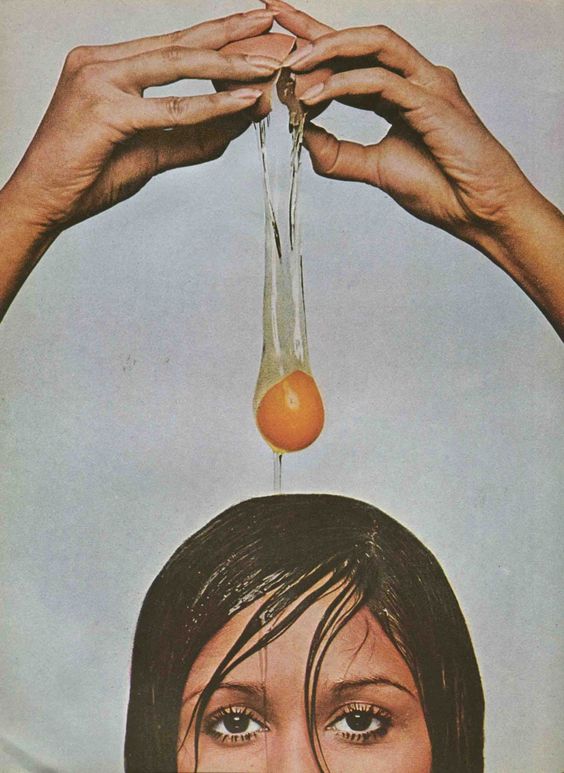







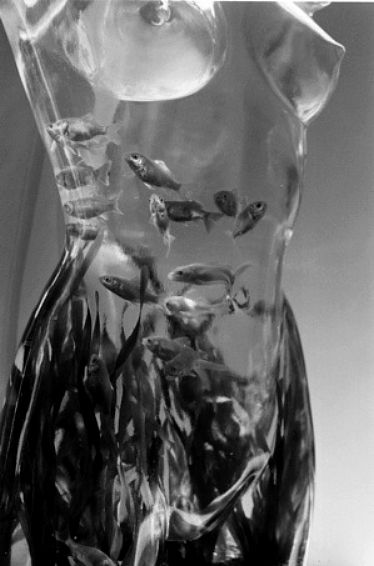

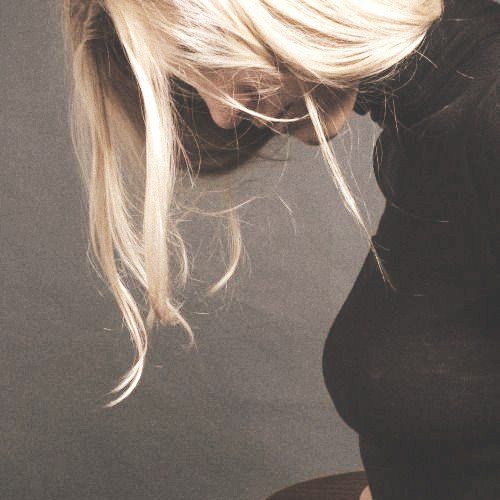


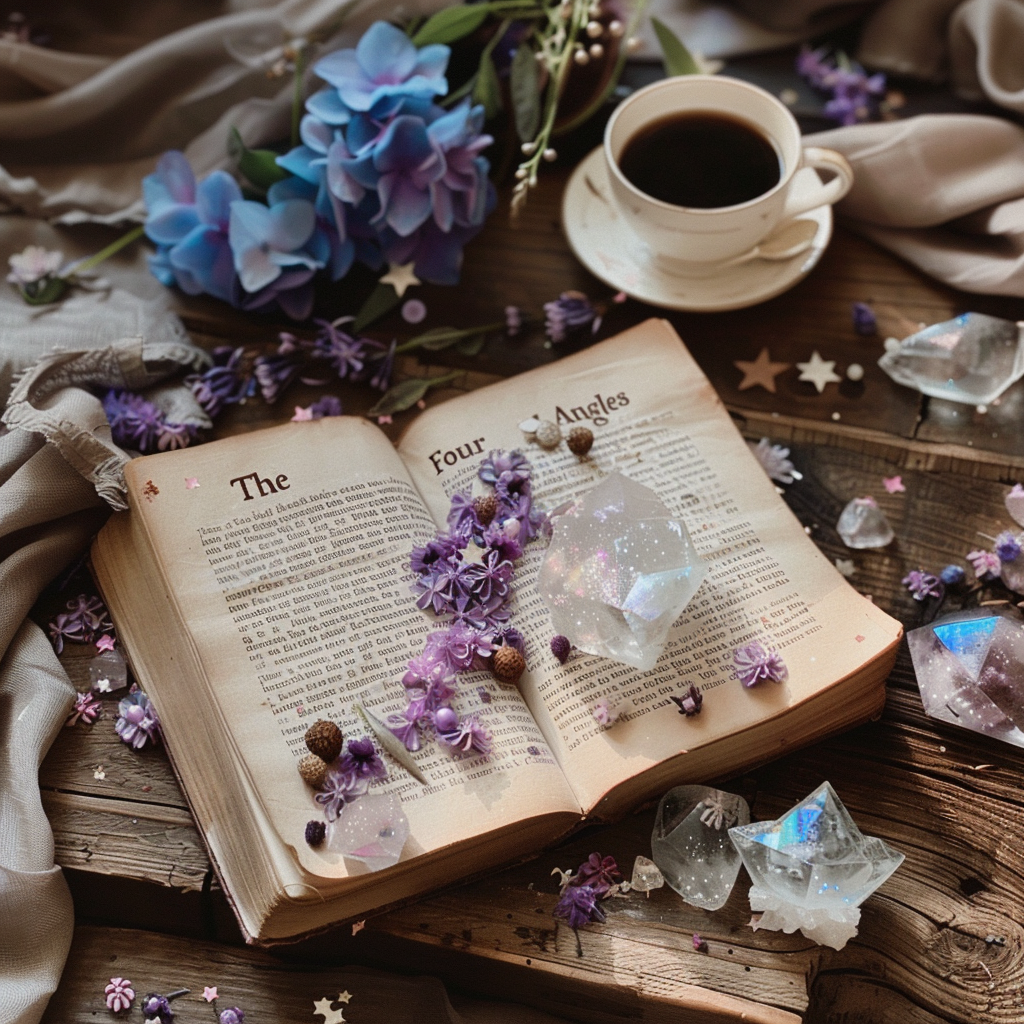
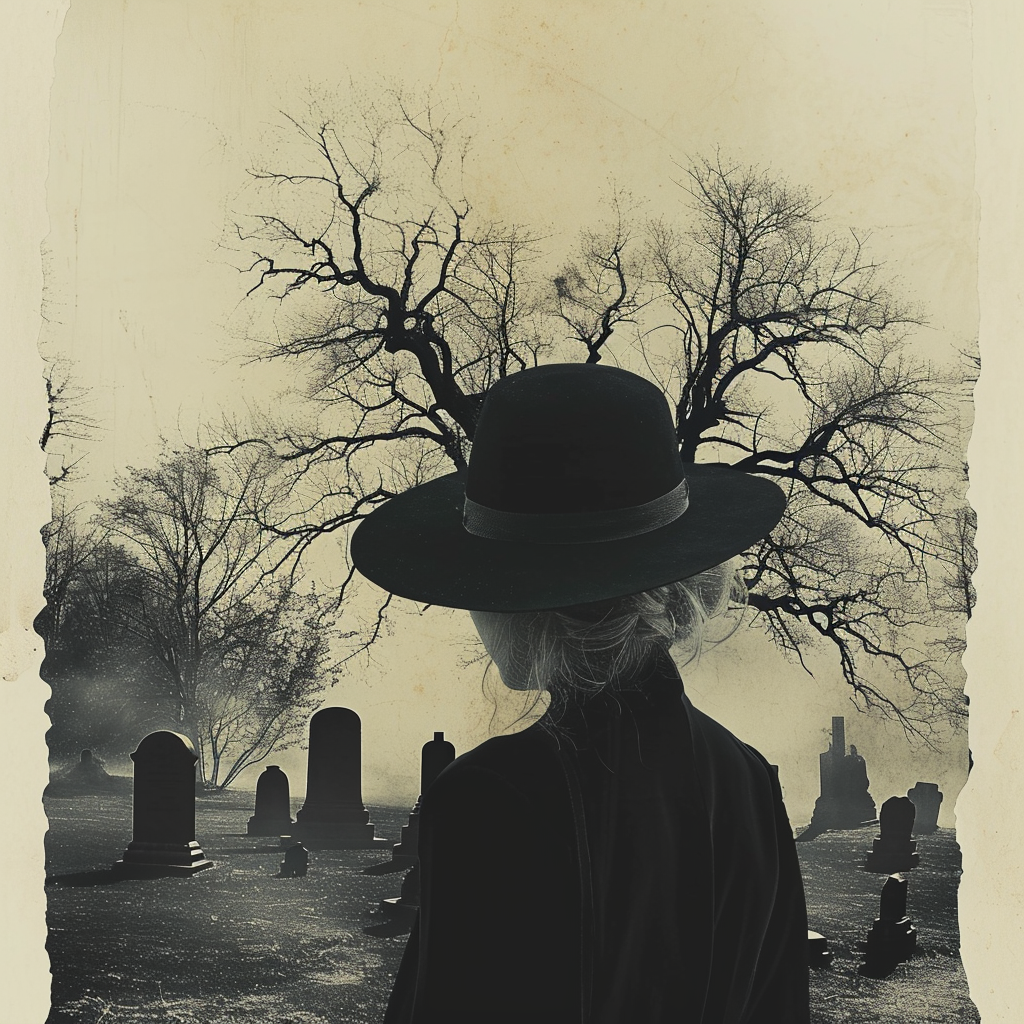










 Venus-Pluto Synastry: A Love So Powerful That It Might Just Kill Them
Venus-Pluto Synastry: A Love So Powerful That It Might Just Kill Them
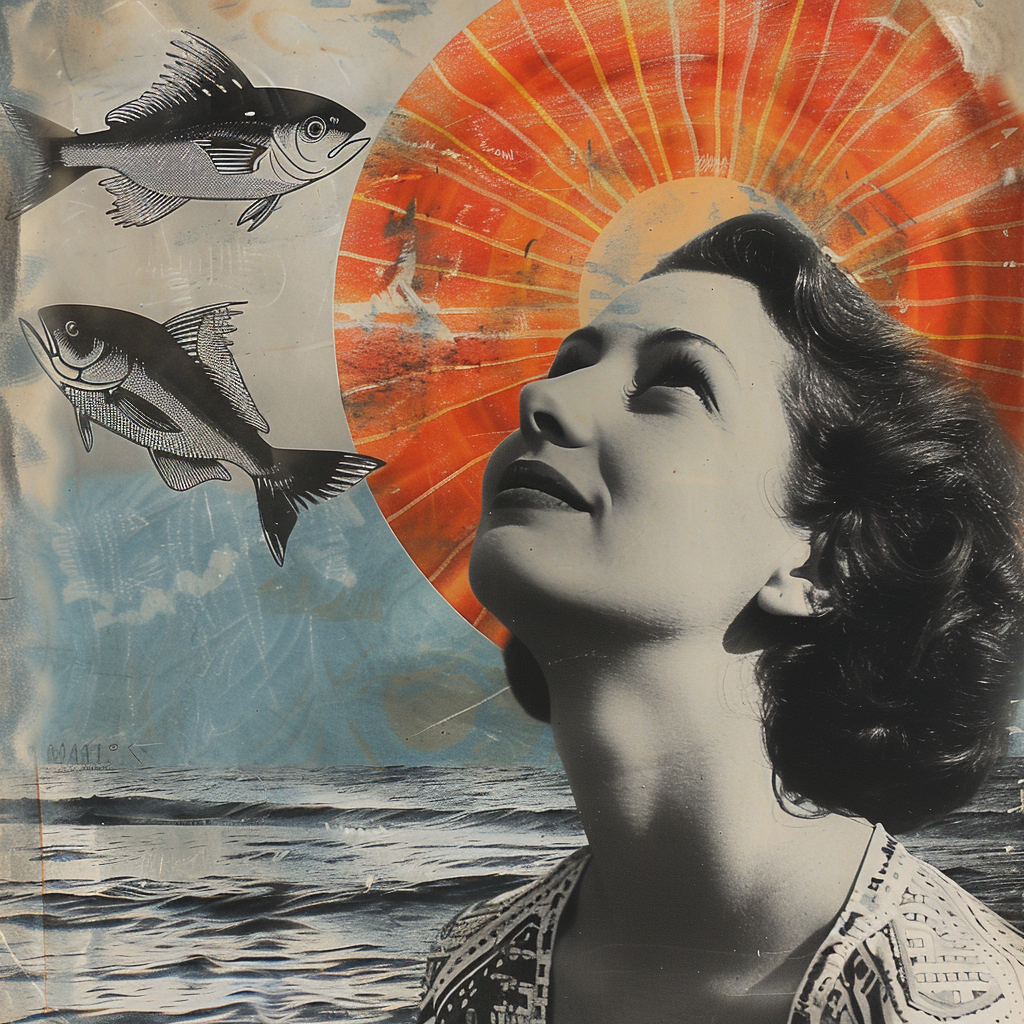 The Pisces Woman
The Pisces Woman
 A Planet in the 8th House: Gets Into the Same Situations Over and Over. It Has to Do With Its Connection to the Dead!
A Planet in the 8th House: Gets Into the Same Situations Over and Over. It Has to Do With Its Connection to the Dead!
 Pluto-Sun Transits: What’s Changed?
Pluto-Sun Transits: What’s Changed?
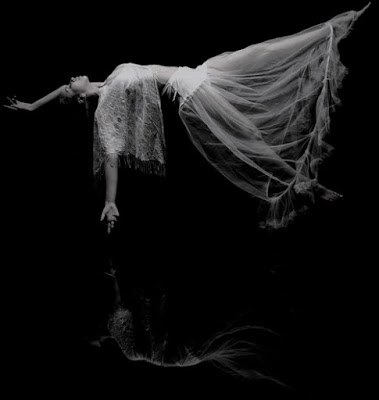 Pluto Transits the 8th House: Major Life-Altering Undertakings
Pluto Transits the 8th House: Major Life-Altering Undertakings
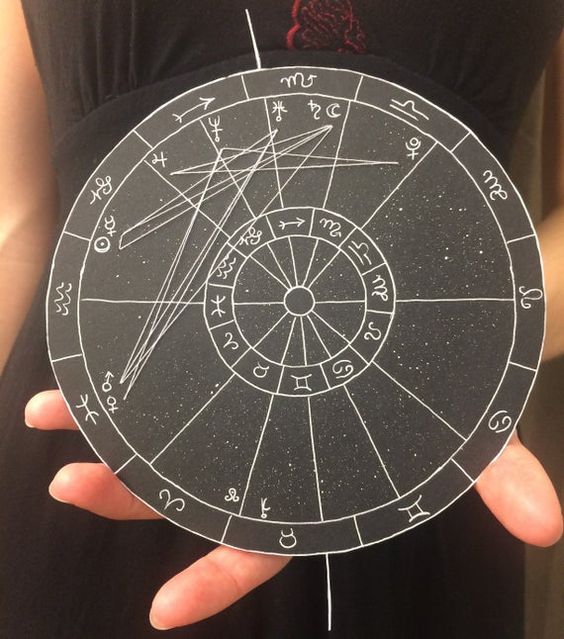 Astrology Degrees and Meaning
Astrology Degrees and Meaning
 Mars-Pluto Synastry: Something Quite Dark and Dangerous
Mars-Pluto Synastry: Something Quite Dark and Dangerous
 Uranus Transits the 4th House: The Chaotic Path to Personal Inner Growth
Uranus Transits the 4th House: The Chaotic Path to Personal Inner Growth
 Pluto in Libra in the 2nd House: Lessons on Self-Worth and Financial Independence
Pluto in Libra in the 2nd House: Lessons on Self-Worth and Financial Independence
 South Node in Scorpio or 8th House
South Node in Scorpio or 8th House
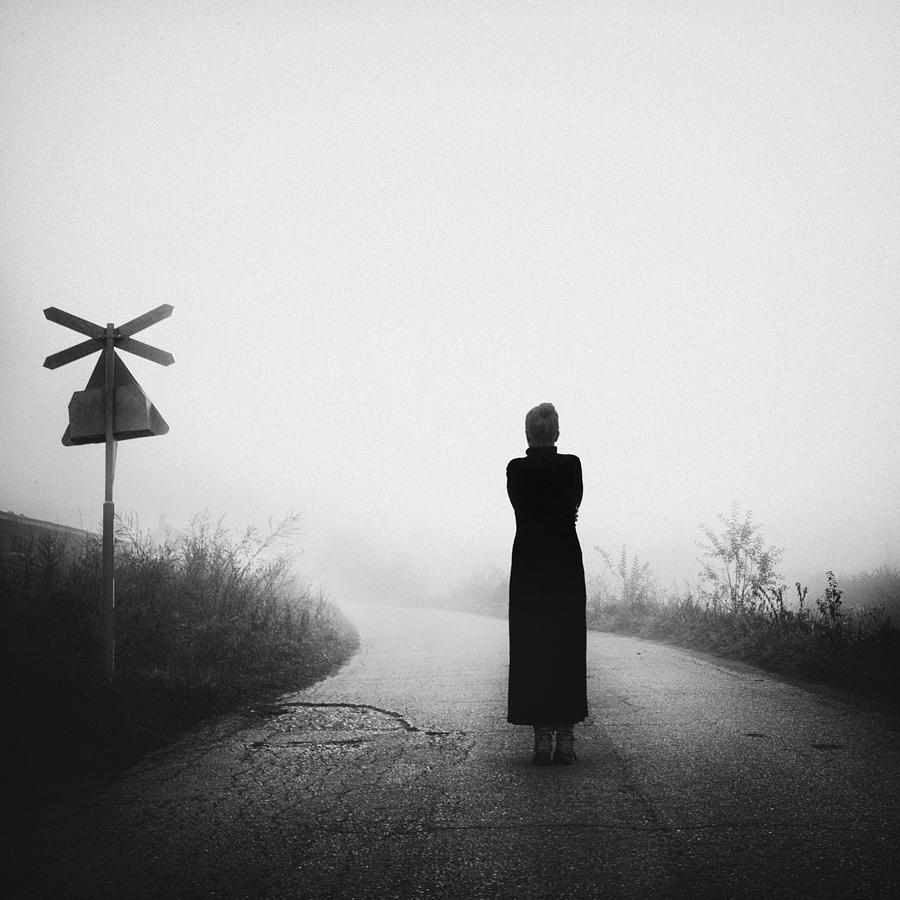 Pluto Transits the 1st House: What to Expect?
Pluto Transits the 1st House: What to Expect?
 Sun Square Pluto Synastry: You’ve Got That Power Over Me
Sun Square Pluto Synastry: You’ve Got That Power Over Me
 Composite Sun in the 8th House: Weather the Storm
Composite Sun in the 8th House: Weather the Storm
 Venus Opposite Saturn
Venus Opposite Saturn
 Aquarius: What Does Consciousness Mean to Them?
Aquarius: What Does Consciousness Mean to Them?
 Uranus Transits: 1st House: Winds of Change:
Uranus Transits: 1st House: Winds of Change:
 Love’s Mirage: The Sun- Neptune Synastry Influence
Love’s Mirage: The Sun- Neptune Synastry Influence
 Moon-Saturn Synastry
Moon-Saturn Synastry
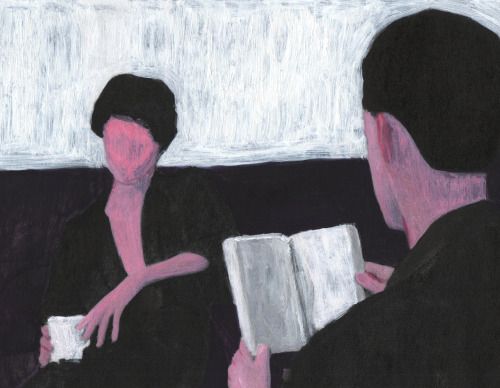 Mercury Trine Pluto Synastry: Into the Rabbit Hole
Mercury Trine Pluto Synastry: Into the Rabbit Hole
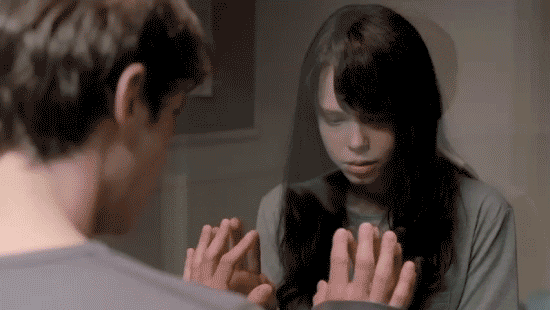 Pluto in the 1st House: Body Language Tips (Gifs)
Pluto in the 1st House: Body Language Tips (Gifs)